A private laboratory specialized in the analysis, testing and failure analysis of materials since 1993
A private laboratory specialized in the analysis, testing and failure analysis of materials since 1993
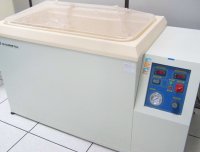
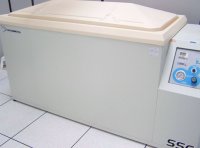
Operating principle
A saline solution (prepared with demineralized water and stored in tanks) supplies the enclosure. This solution is sprayed under pressure through a compressed air inlet saturated with water. A deflector enables homogeneous distribution of the spray in the chamber and prevents the direct impact of the sprayed solution on the tested parts.
Technical characteristics
Up to
![]() Tank capacity (liters): 1000
Tank capacity (liters): 1000
![]() Height (mm): 900
Height (mm): 900
![]() Width (mm): 1600
Width (mm): 1600
![]() Depth (mm): 650
Depth (mm): 650
![]() Temperature range: Tambient +5°C < T (°C) < 50°C
Temperature range: Tambient +5°C < T (°C) < 50°C
Scope
Salt spray tests are generally applied to metals and their alloys, metal coatings and organic coatings on metallic materials. Performance of salt spray tests in accordance with NF EN ISO 9227 and EN 60068-2-11. The tests can also be carried out in accordance with ASTM B117.
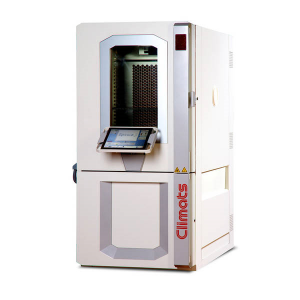
Operating principle
These chambers in our laboratory allow us to create a hot / cold / humid environment according to specification or norm in force to better determine the aging of the materials. Cataplasm, filiform corrosion, and aging resistance tests can be carried out.
These tests can be coupled with vibratory endurance tests with a shaker according to the standards in force. The equipment can also be instrumented if required.
Technical characteristics
![]() Temperature range: -80°C to +200°C
Temperature range: -80°C to +200°C
![]() Ventilation of dual-flow air tanks
Ventilation of dual-flow air tanks
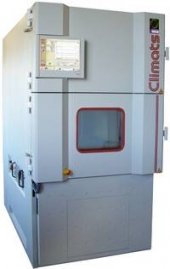
Operating principle
By passing a product alternately from a cold tank to a hot tank, the Thermal Shock environmental chambers are used to vary the temperature of the product at very high speed in order to reveal any possible defects.
These tests are carried out in the laboratory according to a specification or standard in force.
Technical characteristics
![]() Size of pod: L 546 x D 550 x H 415 mm
Size of pod: L 546 x D 550 x H 415 mm
![]() Temperature range: -75°C to +180°C
Temperature range: -75°C to +180°C
![]() Transfer time less than 10 seconds
Transfer time less than 10 seconds
![]() Ventilation of dual-flow air tanks
Ventilation of dual-flow air tanks
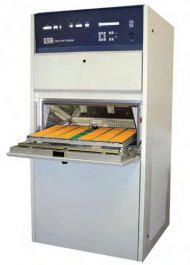
Operating principle
The accelerated aging chamber using XENON light artificially reproduces the complete solar spectrum and thus simulates in accelerated fashion the deterioration caused by solar radiation and weather. These customized cycled tests allow a better knowledge of the resistance to the solar spectrum.
Technical characteristics
![]() Exposure area: 451 x 718 mm
Exposure area: 451 x 718 mm
![]() Adjustment and control of irradiance
Adjustment and control of irradiance
![]() Water spray system and relative humidity control
Water spray system and relative humidity control
![]() Two filters to simulate direct sunlight and sunlight passing through a window
Two filters to simulate direct sunlight and sunlight passing through a window
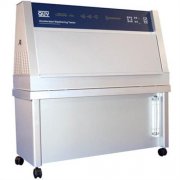
Operating principle
The QUV chamber tests materials by exposing them to alternating cycles of UV light and humidity at high, controlled temperatures. The QUV simulates the effects of sunlight using ultraviolet (UV) fluorescent lamps and also simulates dew and rain by condensation of moisture and/or water spray. Types of damage include changes in color, loss of gloss, chalking, cracking, fissuring, bluing, blistering, peeling, loss of strength, and oxidation.
Technical characteristics
![]() Exposure area: 48 panels 75x150mm
Exposure area: 48 panels 75x150mm
![]() Adjustment and control of irradiance
Adjustment and control of irradiance
![]() Water spray system and relative humidity control
Water spray system and relative humidity control